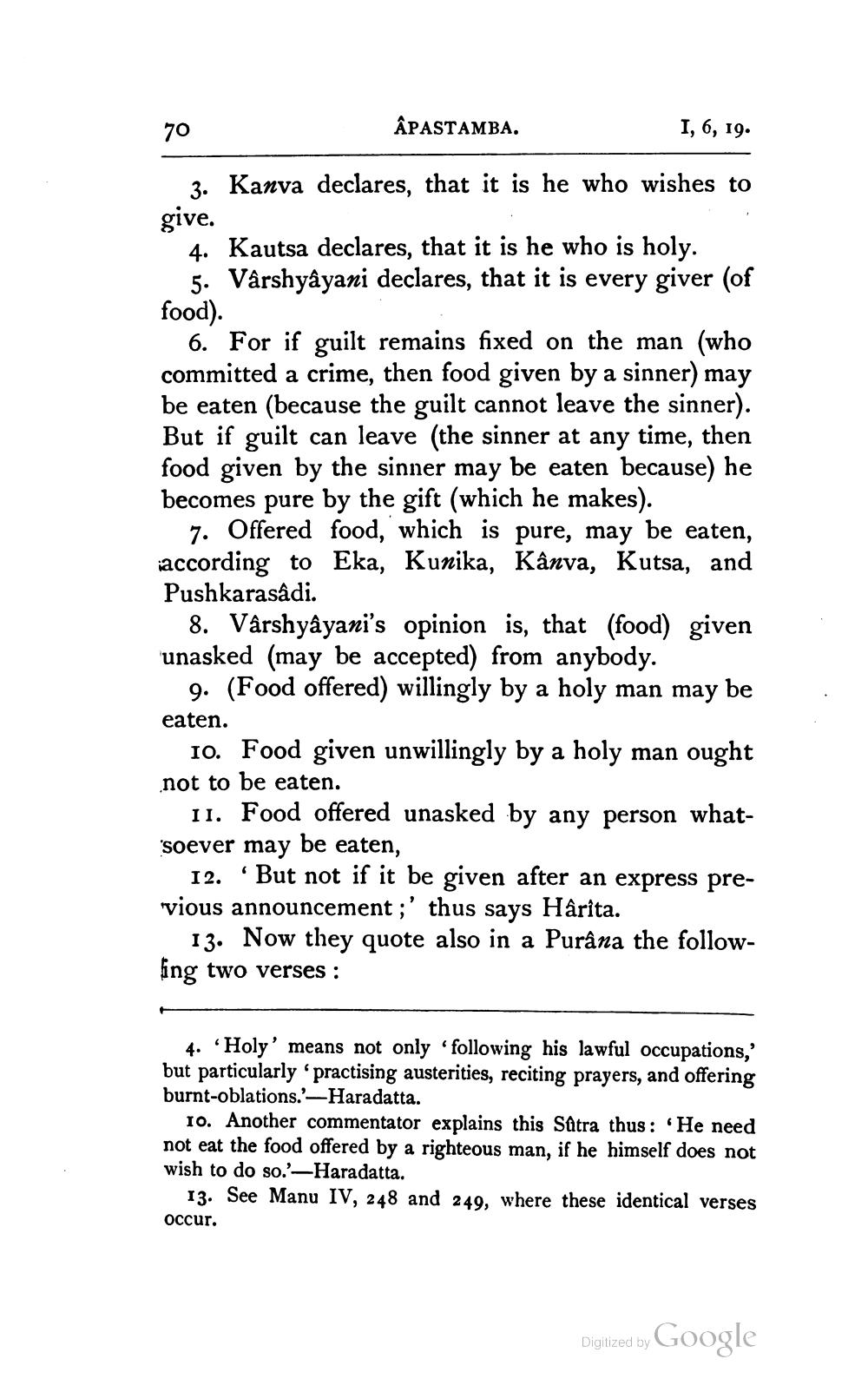________________
70
ÂPASTAMBA.
I, 6, 19.
3. Kanva declares, that it is he who wishes to
give.
4. Kautsa declares, that it is he who is holy.
5. Vârshyâyani declares, that it is every giver (of food).
6. For if guilt remains fixed on the man (who committed a crime, then food given by a sinner) may be eaten (because the guilt cannot leave the sinner). But if guilt can leave (the sinner at any time, then food given by the sinner may be eaten because) he becomes pure by the gift (which he makes).
7. Offered food, which is pure, may be eaten, according to Eka, Kunika, Kânva, Kutsa, and Pushkarasâdi.
8. Vârshyâyani's opinion is, that (food) given unasked (may be accepted) from anybody.
9. (Food offered) willingly by a holy man may be
eaten.
10. Food given unwillingly by a holy man ought not to be eaten.
11. Food offered unasked by any person whatsoever may be eaten,
12. 'But not if it be given after an express pre'vious announcement;' thus says Hârîta.
13. Now they quote also in a Purâna the following two verses:
4. 'Holy' means not only following his lawful occupations,' but particularly 'practising austerities, reciting prayers, and offering burnt-oblations.'-Haradatta.
10. Another commentator explains this Sutra thus: 'He need not eat the food offered by a righteous man, if he himself does not wish to do so.'-Haradatta.
13. See Manu IV, 248 and 249, where these identical verses
Occur.
Google
Digitized by




